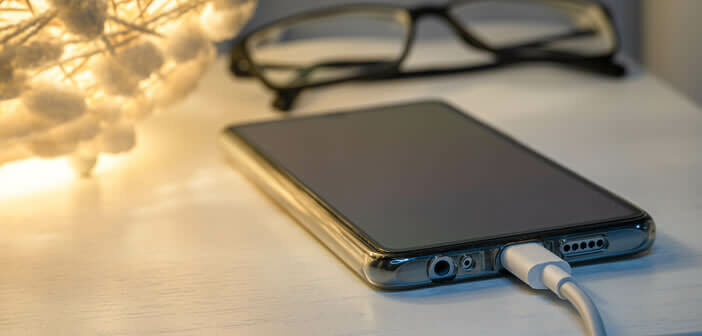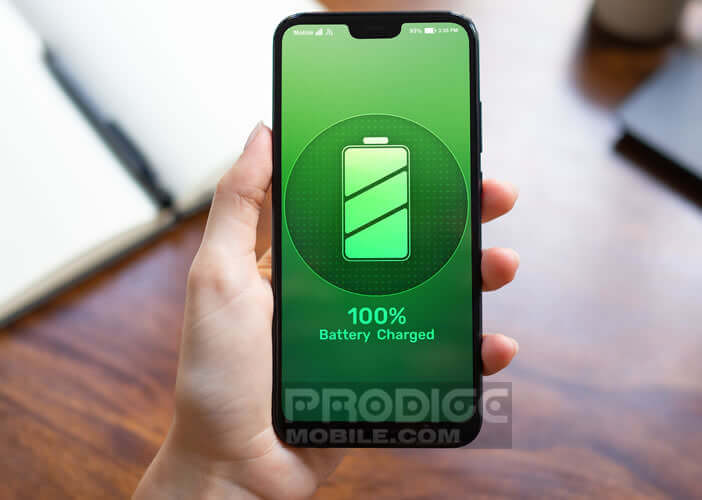
We're all the same. In the evening before going to bed you carefully plug your smartphone into the charger. But can this mundane gesture actually be bad for your phone battery? Is it dangerous to leave your smartphone plugged in all night? As you will see, the answer is not that simple..
Never let your smartphone's battery charge up to 100%
The smartphone has become essential in our daily life. We think we know everything, know everything about how it works. And yet, the battery of smartphones still continues to be debated. Many users have questions about the best way to use it.
As we all know, smartphones are particularly energy intensive. We all try to extend the battery life to increase the autonomy of our device. You are probably wondering if you should leave your smartphone plugged in all night..
The 30/80 rule
Even if at the beginning the answer seems obvious, the various studies carried out in recent years bring some nuances. We often hear that a smartphone should not be permanently connected to the charger. It will damage the battery.
It is also recommended to leave the phone charged between 30 and 80%. Modern batteries wear out more when they are below or above this limit. Care must therefore be taken never to fall below the 30% remaining charge and not to exceed 80%..
Many manufacturers recommend recharging smartphones at intervals and not over a long period. IPhone owners also receive an automatic notification when the battery of their device reaches 80% charge.  For Android, free applications available on the Play Store offer similar functionality. Here is an app to make a complete diagnosis of your phone's battery.
For Android, free applications available on the Play Store offer similar functionality. Here is an app to make a complete diagnosis of your phone's battery.
Myths about smartphone batteries
Most smartphone owners charge their devices at night. Manufacturers know this and equip their devices with chips that can stop charging once the lithium-ion battery reaches 100% of its capacity.
Mais attention, dès que celle-ci retombe à 99%, la charge se redéclenche automatiquement. Ce phénomène peut se produire plusieurs fois dans la nuit. Pour éviter ces cycles de recharges qui réduisent la durée de vie de votre batterie, pourquoi ne pas investir dans une prise intelligente avec minuteur. Vous pourriez ainsi programmer la mise hors-tension de votre smartphone.
Il faut également savoir que la plupart des smartphones modernes sont équipés aujourd’hui d’une fonction de charge optimisée. Elle coupe automatiquement la charge une fois les 80% atteints. Elle ne reprend ensuite qu’une heure avant votre réveil pour être sûr que votre téléphone soit bien chargé à 100% au moment de vous lever.
La recharge optimisée est généralement activée par défaut. Voici la procédure à suivre pour vous en assurer.
- Ouvrez les paramètres de votre téléphone Android
- Click on the Battery section then on Battery states
- Look for the optimized battery charge option
- Make sure the function is activated
Remember that recharging the smartphone generates heat. However, the latter has an impact on the duration of the battery. Some experts recommend removing the shell or the protective case when you charge your phone at night.
If this seems too restrictive, be careful not to place your device under a mound of leaves or books. Likewise, you should never place your phone under a pillow. It is also recommended to place it on a support capable of dissipating heat.